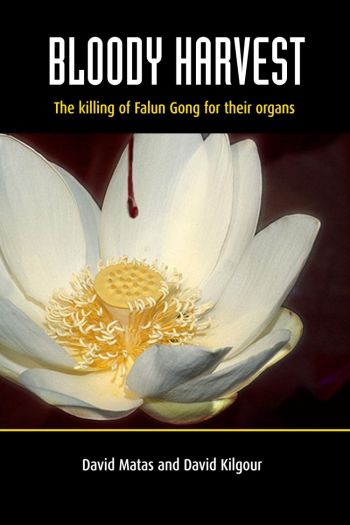China: seven websites shut down in the past few weeks
Posted by Author on August 11, 2006
ifex.org– China’s Communist party has launched a new crackdown on the Internet, with at least seven websites shut down in the past few weeks following a recent pledge by authorities to “take effective measures to place chat forums, blogs and search engines under control,” says Reporters Without Borders (Reporters sans frontières, RSF).
The crackdown began on 25 July 2006, when authorities closed the websites of Century China (Shiji Zhongguo) and the chat forum of the magazine “Life Week” (Sanlian Shenghuo Zhoukan).
Founded in July 2000, the Century China website (http:// http://www.cc.org.cn) is an important space for debate and discussion among intellectuals and dissidents. Articles about subjects ranging from sport to politics were frequently posted on the site.
“Life Week” is a Beijing-based cultural magazine that covers sensitive political issues such as corruption and allows visitors to post news reports from foreign news media. More than 100 Chinese intellectuals have signed a letter urging authorities to lift the ban on the websites (see: http://www.rsf.org/article.php3?id_article=18378).
On 28 July, two blogs belonging to Tibetan poet Woeser (also known as Oser and, in Chinese, Wei Se) were shut down by their host providers without explanation. Woeser used her blogs (http://oser.tibetcul.net/ and http://blog.daqi.com/weise/) to post her poems and essays about Tibetan culture, as well as articles written by her husband, Wang Lixiong, an independent Chinese writer. Most of the visitors to the blogs were Tibetan students, notes RSF. Woeser is one of the few Tibetan authors and poets who write in Chinese. Her book “Notes on Tibet” was banned in 2004 because of its favourable references to the Dalai Lama. She was fired from her job, evicted from her home and lost her social welfare entitlement. She was also forced to write articles recognising her “political errors.” Wang’s website (http://www.Dijin-democracy.net), has also been shut down.
Since late July, e-Wiki (http://www.eeeeee.org/wiki/), a Chinese collaborative encyclopedia based on the popular website Wikipedia, has ceased functioning, says RSF. Local sources told RSF that the decision was linked to posted articles that described James Lung, the head of the Hong Kong-based Southern Democratic Alliance, as a politician close to the Falun Gong spiritual movement and outspoken in his criticism of the Communist Party. Another recently posted article referred to the Taiwanese authorities as the “government of the Republic of China” and said they were not ready to give up their sovereignty and autonomy.
In the latest case, authorities withdrew the operating licence of the website Polls (Zhongguo guoqing zixun) on 3 August. The website (http://www.s007s.com/) had recently asked visitors to “cast votes” on the question: “Do you think the General Secretary of the Communist Party of China should be chosen from among several candidates in differential voting?” Nearly 75 per cent of those polled had answered yes.
The crackdown on websites comes in the wake of a new set of rules issued by Chinese authorities in September 2005. China’s stated policy goals underlying the new rules are to regulate Internet news, satisfy the public’s demand for news, safeguard national security, protect the rights of Internet news providers, and promote the “healthy and orderly” development of Internet news.
Related:
– AI report 2006- China overview(2)
– Undermining freedom of expression in China, Amnesty
– China’s new wave of Internet censorship, RSF
Rate this:
Share this:
- Click to email a link to a friend (Opens in new window)
- Click to share on Twitter (Opens in new window)
- Click to share on Facebook (Opens in new window)
- Click to share on Tumblr (Opens in new window)
- Click to share on Pinterest (Opens in new window)
- Click to share on Reddit (Opens in new window)
- Click to share on LinkedIn (Opens in new window)
- Click to print (Opens in new window)
Related
This entry was posted on August 11, 2006 at 8:54 am and is filed under Blog, censorship, chat, Human Rights, Internet, People, Politics, search engine, Social, Technology, website, Woeser, writer. You can follow any responses to this entry through the RSS 2.0 feed. Both comments and pings are currently closed.
Sorry, the comment form is closed at this time.





